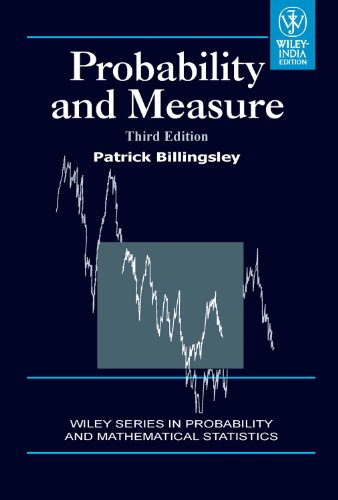=+P*(ANE) + P*(A'nE) = P*(E) hold for every set E; (3.3) is the special case E =
Question:
=+P*(ANE) + P*(A'nE) = P*(E)
hold for every set E; (3.3) is the special case E = f2, because it will turn out that P*(22) == 1.1 A set A is called P *- measurable if (3.4) holds for all E; let be the class of such sets. What will be shown is that A contains o(7)
and that the restriction of P* to o(7%) is the required extension of P.
Fantastic news! We've Found the answer you've been seeking!
Step by Step Answer:
Related Book For 

Probability And Measure Wiley Series In Probability And Mathematical Statistics
ISBN: 9788126517718
3rd Edition
Authors: Patrick Billingsley
Question Posted:






